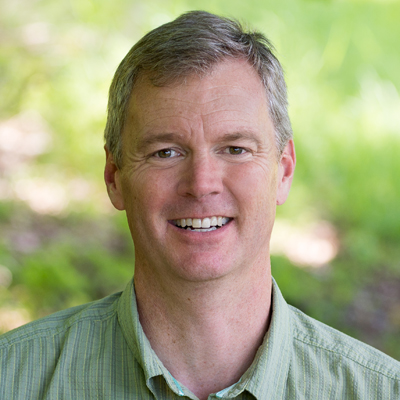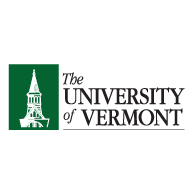Aligning economics with conservation
By 2050, we will need to feed two billion more people. How can we do that without overwhelming the planet? Scientists are beginning to realize that the natural world actually underpins our own economies and livelihoods. Dr. Taylor Ricketts, Director of the University of Vermont’s Gund Institute for Ecological Economics, is working to understand the various ways that nature benefits people, and the ways that we can manage ecosystems more wisely with that knowledge. His research explores the relationships between nature, the economy, and society by quantifying the benefits we receive from the environment, and calculating the cost of its destruction. His work creates a powerful business case for landowners, industries, and government to protect ecosystems and species that humans need to thrive.
Dr. Ricketts and his team combine the strengths of natural and social sciences to address these sustainability challenges. Through field experiments, they quantify the importance of wild species to our food supply. Through sophisticated computer modeling, they map the economic “return on investment” in conserving nature. And through pioneering uses of “Big Data” – the torrent of information now available from long-term datasets, social media, and the Internet – they determine how nature affects people’s mental and physical health. Dr. Ricketts’ research goes beyond the walls of a laboratory, or even the boundaries of a field experiment, to find solutions to real-world problems. In all of his research, he collaborates closely with people in non-profit and government sectors to link rigorous research with practical conservation and policy efforts worldwide.
Current research includes:
-
The Value of Nature: Dr. Ricketts works to estimate the economic value of conserving nature. He and his team have worked in Sumatra, Costa Rica, Tanzania, and the U.S., to calculate these economic values and use them to predict how land use decisions and policies might alter the flow of benefits to people. These benefits can be found in forests that store carbon (and keep it out of the atmosphere), wetlands that purify water and slow down floods, and many other forms. Questions they are pursuing include: What benefits do natural ecosystems produce for people? Where are they coming from and who are they benefitting? How much are they worth? Would nature conservation have a positive "return on investment" as a result?
-
Wild Pollinators and our Global Food System: 70% of crops require bees or other pollinators to yield well; it is worth billions annually. Dr. Ricketts uses field experiments to calculate the contribution of wild pollinators to crop yields and farm revenue. He also samples bees to understand what they need to persist in our farmed landscapes. The goal is to quantify the importance of pollinators, and help farmers with their populations. Dr. Ricketts and his team have worked on coffee and blueberry crops specifically, and he helps lead a national consortium using identical methods on a range of U.S. crops, to build a more general picture.
-
Is Nature Good for You?: Beyond economic benefits, nature’s ecosystems can improve human health outcomes in a variety of ways. Dr. Ricketts is pursuing a cluster of projects in this area. For example, he co-leads a research team using data from millions of households to understand how disease risk in children depends on the ecological health of the watersheds they live in. He is also studying the health impact of pollinator decline. Bee-pollinated plants like mangos and squashes are an important source of micro-nutrients in the global food supply. If pollinators keep declining, will people become nutrient deficient?
Bio
Dr. Taylor Ricketts is one of the world’s leading experts on the connections between people and nature. Recognized in 2014 as one of the 1% most influential scientists in the world, the University of Vermont professor and World Wildlife Fund senior fellow is committed to connecting rigorous research to real-world sustainability problems.
Taylor’s path to this career began as a leader of adventure tours around the world. In five globetrotting years he experienced the wonders of nature, but also the pace of its destruction. He’d return to favorite bird watching spots in the Amazon to find them logged the next year. Penguin colonies in Antarctica shrank each summer from overfishing nearby. Seeing these profound changes in such short amounts of time, Dr. Ricketts decided to study ecology and work to preserve our global natural heritage. At the same time, he recognized that communities around the world were using these resources to support their families. Realizing that answers were not simple, he has focused his career on identifying ways in which human communities and nature can thrive together.
Dr. Ricketts, whose education spanned both U.S. coasts (Stanford and Dartmouth), thoroughly enjoys the intellectual discovery in research. He gets a thrill every day in figuring out new things about how the world works. Ultimately though, his motivation is to put that new knowledge to work, to inform the decisions -- made daily by farmers, governments, and businesses -- that affect the natural world and our place within it. Before moving to the University of Vermont, he led the World Wildlife Fund’s Conservation Science Program for nine years. He is also the co-founder of the Natural Capital Project, a partnership among global universities and NGOs to make information on nature’s benefits available to anyone.
Aside from research, the Washington State native enjoys being in the outdoors and spends much of his free time skiing, kayaking, sailing, playing soccer or backpacking in Vermont. As a father with young children, he admits that much of his time is spent “shamelessly indoctrinating them” to the wonders of the natural world.


